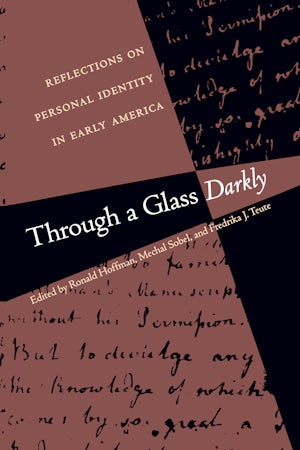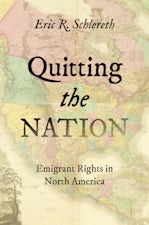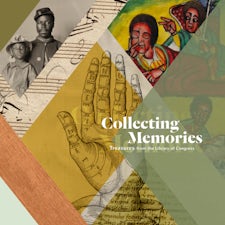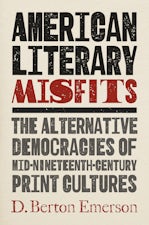Through a Glass Darkly
Reflections on Personal Identity in Early America
Edited by Ronald Hoffman, Mechal Sobel, Fredrika J. Teute

480 pp., 6.125 x 9.25, 23 illus., 1 map, notes, index
-
Paperback ISBN: 978-0-8078-4644-5
Published: September 1997
Published by the Omohundro Institute of Early American History and Culture and the University of North Carolina Press
Buy this Book
Published by the Omohundro Institute of Early American History and Culture and the University of North Carolina Press
About the Authors
Ronald Hoffman is director of the Omohundro Institute of Early American History and Culture.
For more information about Ronald Hoffman, visit
the
Author
Page.
Mechal Sobel is professor of history at the University of Haifa.
For more information about Mechal Sobel, visit
the
Author
Page.
Fredrika J. Teute is the Institute's editor of publications.
For more information about Fredrika J. Teute, visit
the
Author
Page.
Reviews
“An important collection of essays. . . . Though many traditional types of sources are consulted (manuscripts, diaries, journals), the authors push boundaries to consider the nontraditional object as well. Interpretations and views of daily life are broadened and what it meant to live in seventeenth-and eighteenth-century America is reexamined.”--Journal of American Culture
“A compelling look at a growing trend in writing early American history. . . . The analytical categories of the new social history--race, class, and gender--remain alive and well, but now, as suggested by the book’s title, historians are refracting them through a new lenses.”--Pennsylvania Magazine of History and Biography
”Fascinating . . . rich and diverse.”--Reviews in American History
"Every historian serious about early America, or historiography in general, should own this landmark collection"--Choice
"Drawing on a wide variety of disciplines--anthropology, sociology, psychology, material culture, and performance theory--the authors of these marvelous essays are able to find in the darkened glass of the historical archive an extraordinarily rich and complex play of reflections on selfhood and society in early America. From inquests to bequests, from clothing to cupboards, from ballads to broadsides, these historians put the scattered record of the distant past to brilliant use by showing how early Americans creatively explored and exploited the blurred boundaries of a 'marchlands' culture to make and unmake themselves. The double pleasure of this collection, though, is the almost kaleidoscopic reflection it casts on our own--as well as the past's--senses of the self."--Jean-Christophe Agnew, Yale University
"In addition to offering fresh insight into problems of identity, the book in all its variety makes terrific reading."--Patricia Meyer Spacks, University of Virginia



